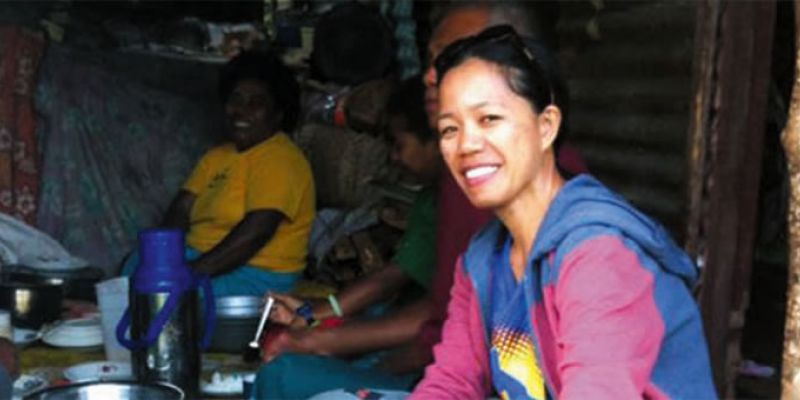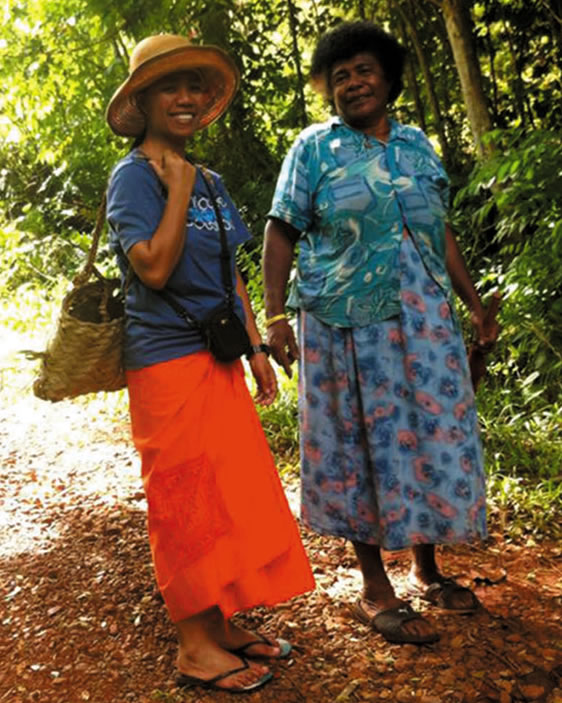
Learning from Elderly Fijians
Not long ago I dared to follow a so called "dream," a dream that became reality when one day I found myself in a place different from my home. This must be the effect of being raised in a Catholic school where various mission magazines are seen in every corner of the library as well as Reader's Digest! And I must confess, it's our school rector's fault that I am here on the island of Fiji.
Chasing that Dream

Maybe it was destiny or chance that I landed in a ministry that I hadn't even considered. My ministry is work that I didn't even know was needed! Though it was hard at first, through learning and being part of the daily life in Fiji, things gradually became easier for me in this foreign land.
Visitation is common in Fiji. My Bubu (grandmother) once told me, "when you go for visitation especially in the villages, remember that it will always be good to go in a group." I was confused at that time because the culture was still so new to me. And so I took her word and started going to the villages with a group or with at least one other person. Indeed, the atmosphere is different when you going on your own. As a foreigner I can't just go alone. I have to be accompanied by somebody, some kind of spokesperson. When this experience took place the first time, I was really uneasy. But time helped me to understand our differences. What is good in my culture might not be good in Fijian culture. But one thing we have in common is the love and happiness in visiting people. Sometimes it's difficult to comprehend, but faith makes me understand that I don't need to know the answer to all questions because not all questions have answers.
Sharing Stories
One day a friend and I visited an Indian family for the second time. I thought it would be a one or twohour visit just like the first time, but it went for eight hours. I went home still thinking what had just happened to that visitation? Why was it so long? What have I done during that encounter with them? It leads me to go back during Jesus' time. He had been sitting with the people, eating, drinking, sharing stories, and listening. Looking at it, I started to realize that just our mere presence with these people is a simple act of care and love to them. It may seem to be a normal thing for me to do, but it makes a difference, especially to the people who had been waiting for someone to visit them.
A Visit with Nau Kata
Nau Kata (Grandma Kata) is one of the patients at Ashram Home for the Aged. She's the only iTaukei (local Fijian) in that home with 29 Indian elders. When I first arrived in the parish I visited this home and there I met her. I was excited that time knowing that I can speak the language and that I can practice my Fijian language too. My first visit with her was awesome. She shared with me her stories from past to present. But what saddened me was her longing to see her family. She was living on her own before a Good Samaritan woman brought her into this home. Her husband died years back without them having any children. My visit to her was followed up the second week, and it eventually became a regular, weekly visit. For the first three months we had good conversations, but not too long ago I started to notice that her memory is deteriorating. She kept repeating stories every visit like many old people do. She even kept asking my name! I felt like I had lost with my connection with her.
But there is one thing that she had not forgotten–the Eucharist! She might have forgotten all the things she used to know, but her love for the Eucharist is really something. She never forgot to ask me when would I bring the Eucharist to her. It pinches my heart. How I wish that when my older days come, I will never forget my love to Him like Nau Kata!
Monalisa Esteben is a Columban lay missionary living and working in Fiji.


 The Columbans are a society of missionaries, including priests and lay people, who minister to people of various cultures as a way of witnessing to the universal love of God.
The Columbans are a society of missionaries, including priests and lay people, who minister to people of various cultures as a way of witnessing to the universal love of God.